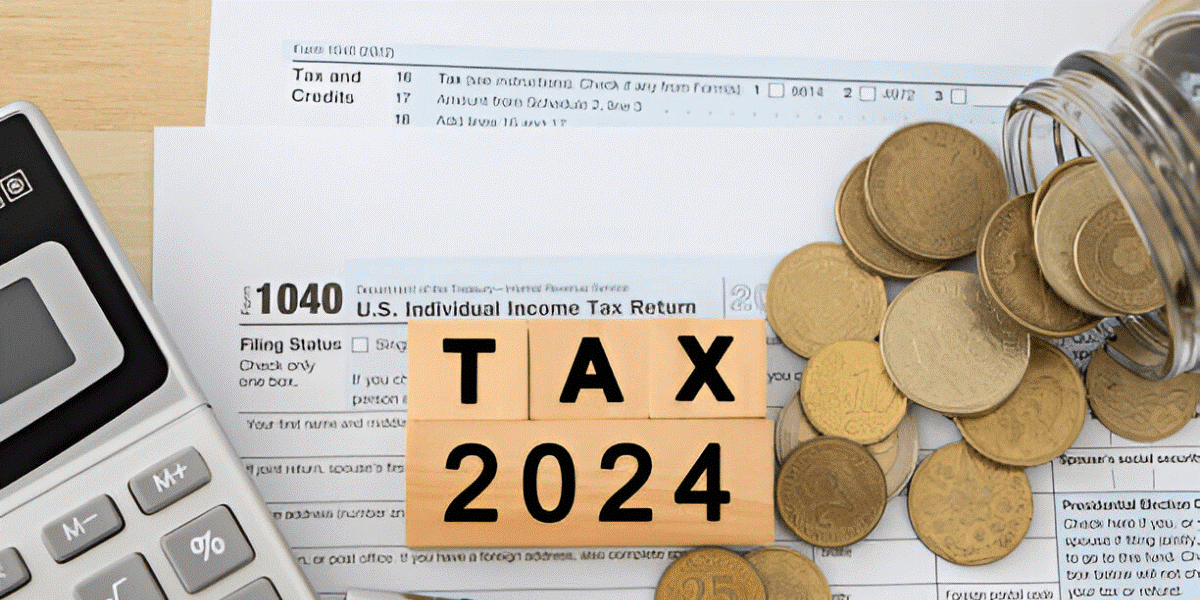A Complete Guide To Land Tax In Australia 2023-2024
Australia's approach to property taxation is a vital aspect of its fiscal policy, significantly impacting both property owners and the broader state economy. At the heart of this system is the Land Tax, governed by the Land Tax Act 1936 and the Land Tax Regulations 2010. These legislative documents form the legal backbone for the assessment and collection of land tax across the nation.
The Land Tax Act 1936, alongside the Land Tax Regulations 2010, provides a structured approach to determining how land tax is calculated, assessed, and enforced. Understanding these laws is crucial for property owners and potential buyers, as it affects their financial planning and investment strategies.
Purpose Of Land Tax
Land tax plays a pivotal role in the Australian economic landscape. It is not just a revenue stream for the government; it's a critical contributor to the funding of essential public services. The revenue generated from the land tax is channelled directly into the general state funds, which in turn finance key areas such as health services, education, police services, community welfare, and other crucial sectors where direct charges are not applicable. This distribution underscores the importance of land tax in maintaining and improving the quality of life in Australia.
Understanding Land Tax
Definition And Nature Of Land Tax
Land tax is a state-imposed levy primarily based on the value of land owned. It is an annual tax calculated based on the site value of the land, excluding any buildings or improvements made to it. The levy is determined under the guidelines set out in the Land Tax Act 1936 and adheres to the principles laid down in the Land Tax Regulations 2010.
In essence, land tax is assessed on the bare land value, emphasising the potential earning capacity or utility of the land itself rather than the developments made upon it. This assessment method aligns with the principle of taxing the unimproved value of land, which is a common approach in property taxation globally.
Importance Of The Financial Framework
The role of land tax within the Australian state's financial framework cannot be understated. It is a major source of revenue, which is critical for maintaining and developing public infrastructure and services. By levying land tax, the state ensures a steady flow of income that supports various public services, ultimately contributing to the overall economic stability and growth of the nation.
Moreover, land tax acts as a tool for economic policy, influencing land use and property development decisions. Taxing land based on its value encourages the efficient use of land resources, potentially reducing land speculation and promoting better land management practises.
Calculation Of Land Tax
The process of calculating land tax in Australia is anchored in the valuation of the land itself, specifically its site value. This calculation method reflects a strategic approach to property taxation, emphasising the inherent value of the land over the value added by any buildings or improvements.
Site Value Basis
At the core of land tax calculation is the concept of 'site value'. This refers to the value of the land alone, without taking into account any structures or improvements made on it. The site value provides a more uniform basis for taxation, focusing on the land's intrinsic worth. This method ensures that the tax is based on the potential economic utility of the land rather than the investment made on the property.
Role Of The Valuer-General
The determination of the site value is a critical aspect of the land tax assessment process. This responsibility lies with the Valuer-General, a statutory officer who conducts valuations under the guidelines of the Valuation of Land Act 1971. The Valuer-General's assessment is central to ensuring that the land values used for tax purposes are accurate and reflect the current market conditions.
Progressive Rate Structure
Once the site value is determined, land tax is calculated using a progressive rate structure. This means that the rate of tax increases with the value of the land. Such a structure ensures a fairer distribution of the tax burden, with higher-value properties contributing more to the state revenue. This progressive nature of land tax is designed to align with principles of equity and economic efficiency.
Who Is Liable?
Understanding who is liable for land tax is crucial for compliance and financial planning. The definition of 'owner' in the context of land tax is broader than just the registered titleholder.
Definition Of 'Owner'
The primary definition of an 'owner' for land tax purposes is the individual or entity whose name is recorded on the Certificate of Title. However, there are several nuances and exceptions to this rule. This includes people who have legal or equitable ownership of the land, including those entitled to acquire such ownership.
Scenarios Of Ownership
- Freehold Land: In most cases, the owner of freehold land will be the person listed as the registered legal owner. However, the definition can extend to any person who holds legal or equitable ownership.
- Trusts: For land held in trust, the trustee is typically considered the owner for tax purposes. However, certain types of trusts may see beneficiaries or unitholders deemed as owners for land tax assessment.
- Joint Ownership: In scenarios where land is owned jointly, each co-owner's liability for land tax is assessed based on their share of the property. This includes both individual and joint holdings in land.
These nuances in the definition of 'owner' and the different scenarios of ownership underline the complexity of land tax liability. It's crucial for property owners, potential buyers, and investors to understand these aspects to accurately assess their tax obligations and plan their finances accordingly.
Aggregation And Assessment
Process Of Aggregating Site Values
In the realm of land tax, the aggregation of site values plays a pivotal role. This process involves combining the site values of all taxable land owned by an individual or entity. The total aggregated value then forms the basis for land tax assessment. This approach ensures that an owner's total land holdings are considered in their entirety rather than assessing each parcel of land in isolation.
Assessment Of Joint And Individual Ownership
The assessment of land tax varies depending on the ownership structure:
- Joint Ownership: In cases of joint ownership, the first step involves assessing the land tax based on the combined site values of all land within that joint ownership. Only if the total taxable site value exceeds the taxable threshold will a Land Tax Assessment be issued for the joint ownership.
- Individual Ownership: For individual owners, the process involves aggregating the site value of all land owned solely by the individual plus their proportionate share of any jointly owned land. After this aggregation, a deduction is applied to the individual’s Land Tax Assessment corresponding to their share of the land tax assessed in the joint ownership.
Land Held On Trust
Land tax assessment for land held on trust follows distinct rules:
- Land held in trust is assessed separately from other land owned by the trustee in their right.
- For trusts, higher rates of land tax and a lower threshold apply, reflecting the different nature of trust ownership.
- The general rate of land tax may apply to certain trusts, depending on specific conditions.
Exemptions And Reductions
The land tax regime also provides for various exemptions, with the most notable being the principal place of residence exemption.
Principal Place of Residence Exemption
- This exemption applies to land owned and occupied by a natural person as their primary residence.
- The extent of the exemption can vary based on the usage of the land, with partial or full exemptions available.
Conditions for Exemptions
- The exemption criteria must be satisfied at midnight on 30 June, immediately before the relevant financial year.
- In cases where a property is jointly owned, only one owner needs to reside on the property to qualify for this exemption. However, specific ownership percentages may influence eligibility.
Backdating Exemptions
- Under certain circumstances, a principal place of residence exemption may be backdated for up to five years.
- This provision allows for refunds due to reassessment, although refunds for payments made more than five years before the refund request are not typically available.
Taxpayer Obligations And Rights
Responsibilities Of Landowners
As a landowner in Australia, it's imperative to be aware of your obligations regarding land tax:
- Notification of Changes: Landowners must inform the Commissioner of State Taxation of any changes in ownership or address for service of a Land Tax Assessment.
- Accurate Information: Providing accurate and up-to-date information about your land holdings is essential for correct tax assessment.
- Timely Payment: It is the responsibility of the landowner to ensure that land tax is paid on time, either in full or through agreed-upon instalments.
Rights Of Taxpayers
Taxpayers are afforded certain rights within the land tax system:
- Objections: If a landowner disagrees with the land tax assessment, they have the right to lodge an objection.
- Appeals Process: In the case of a dispute, taxpayers can appeal against the decision made following their objection.
- Access to Information: Taxpayers have the right to access information regarding how their land tax was calculated and the basis of their assessment.
Land Tax And Property Transactions
Impact On Buying And Selling Property
Land tax can significantly impact property transactions:
- Responsibility Transfer: During a property sale, the responsibility for land tax shifts from the seller to the buyer.
- Settlement Considerations: The settlement process should account for the land tax owed, with adjustments made to ensure both parties pay their respective shares.
Certificates Of Land Tax Payable
These certificates play a crucial role in property transactions:
- They provide a statement of the land tax payable on the property.
- A Certificate of Land Tax Payable ensures that the buyer is aware of any outstanding land tax liabilities before the transaction is completed.
Compliance And Enforcement
Importance Of Compliance
Complying with land tax regulations is crucial for several reasons:
- Legal Obligation: It's a legal requirement for property owners to comply with land tax laws.
- Financial Health: Compliance contributes to the financial health of the state, supporting essential public services.
Consequences Of Non-Compliance
Failure to comply with land tax regulations can lead to:
- Penalties: Non-compliance may result in fines or additional charges.
- Interest on Unpaid Tax: Accumulation of interest on unpaid tax amounts is also a common consequence.
Wrapping Up
Understanding the intricacies of land tax in Australia is essential for property owners and investors. This guide has provided a comprehensive overview of how land tax is calculated, assessed, and enforced, along with detailing taxpayer obligations, rights, and the impact of land tax on property transactions.
Staying informed about your responsibilities and rights as a landowner and ensuring compliance with land tax regulations are not just legal obligations but also contribute to the greater good by supporting vital state-funded services. By keeping abreast of changes in legislation and understanding your tax obligations, you can make informed decisions and avoid unnecessary penalties or charges.
Trust Tax App To Deal With Your Land Tax
Are you manoeuvring the complexities of property investment or development? Tax App's specialist property team is here to guide you. Our chartered accountants bring extensive experience in both commercial and residential property sectors, offering tailored support to businesses, entrepreneurs, individuals, trusts, and organisations.
Affordable, Comprehensive Services
Our property accountant in Australia is well-versed in the following:
- Structuring property deals
- Auditing, tax, and accounting services
- Property-related tax advice
- Fundraising strategies
- Sale and leaseback agreements
- Tax mitigation
We specialise in buy-to-let accounting and cater to the unique needs of landlords and investors.
Tailored Solutions for Maximising Profits
Whether you’re a newcomer to the property market or a seasoned player with an extensive portfolio, our team delivers commercial and practical solutions to enhance your profitability. We stay ahead of the curve on new legislation and market changes to ensure you receive cutting-edge service.
Connect with Our Experts
Are you eager to learn how Tax App can improve your property tax and accounting strategies? If yes, then reach out to our specialist property accountants and tax advisors today. With our nationwide presence in Australia, we are your ideal partner for comprehensive property tax advice.
Disclaimer:
The content of these blog posts is intended to be of a general nature and should not be construed as tax or any other form of advice. We do not guarantee the accuracy or completeness of the information provided in these blog posts. It is imperative that you consult with a qualified professional, such as a certified accountant at Tax App, before taking any action based on the advice or information contained herein. Your specific financial and tax situation may require personalised guidance, and a professional consultation is recommended to ensure compliance with applicable laws and regulations.
Get Started with Us
Connect with Australia’s most innovative accountants today. Fill out our contact form, and let’s discuss how we can help you achieve your financial goals. Together, we’ll create a tailored action plan that maximises your tax savings.
Awards!
⭐⭐⭐⭐⭐















